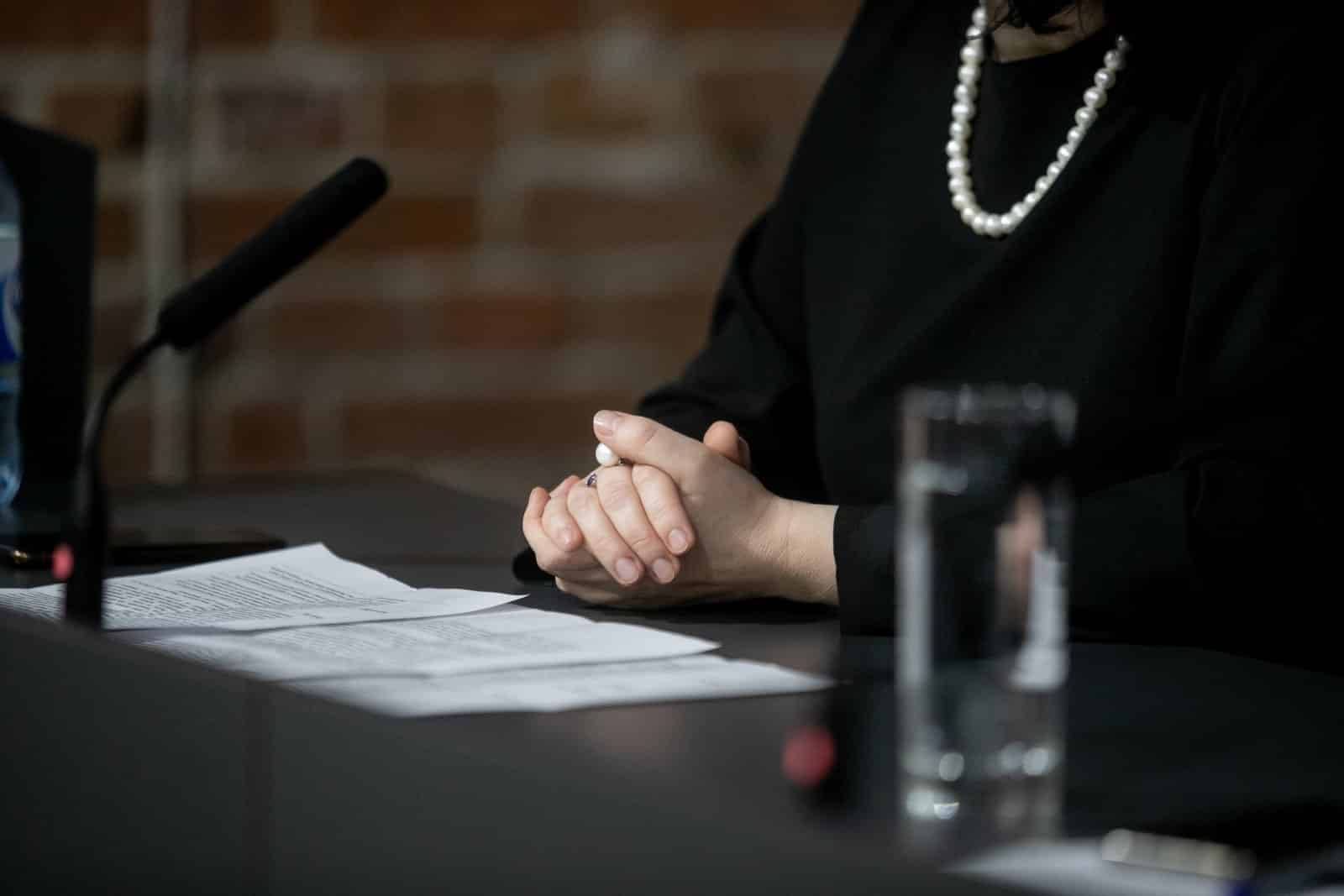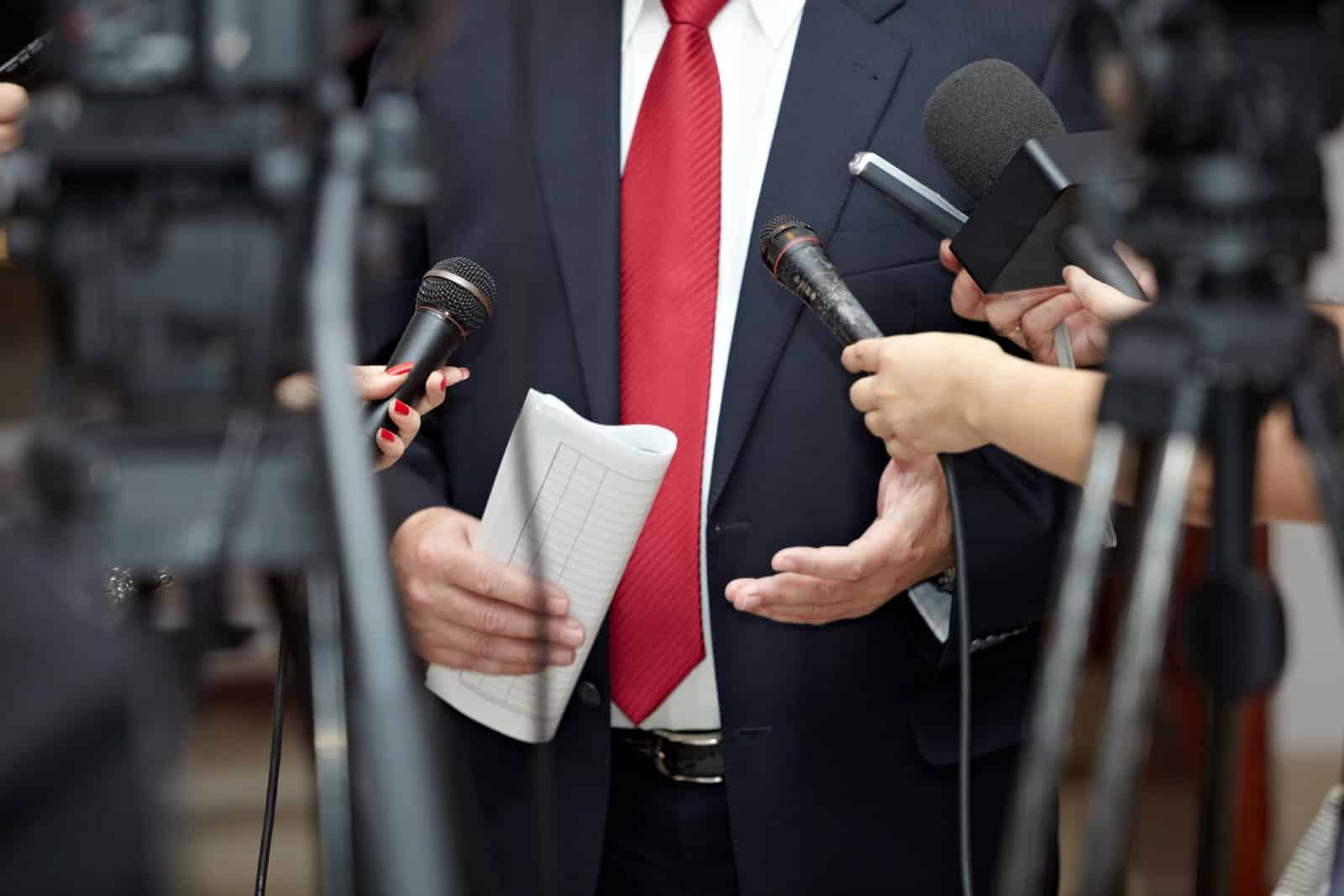Washington has gone back and forth over sanctions on Chinese financial institutions, but the Treasury Secretary has shared that no moves are being made just yet.
Talk of Sanctions

In recent days, the possibility of U.S. sanctions against Chinese banks has loomed over the global marketplace. On Thursday, U.S. Treasury Secretary Janet Yellen clarified the government’s stance.
“Nothing to Announce”

“I have nothing to announce in terms of sanctions [on Chinese banks],” Yellen said in an interview with Reuters. She also clarified that the U.S. “would be prepared to use [them] if necessary.”
Trade Between Russia and China Grows

The possibility of sanctions has arisen following the growing trade between China and Russia and the potential bolstering of the Russian military presence in Ukraine.
Wall Street Journal Sparks Debate

Speculation ballooned on Monday when the Wall Street Journal reported that U.S. lawmakers were already in the process of drafting sanctions against specific Chinese financial institutions suspected of trading with Russia.
A Fraught Geopolitical Relationship

Excluding Chinese lenders from global financial relationships could further strain the already tense relationship between the U.S. and China.
The Only Way?

However, it may be the only way for the country to address the growing relationship between China and Russia.
Main Supplier of Industrial Components

While it is unlikely any military weaponry has passed between the two countries, Chinese companies are currently the main suppliers of Russia’s industrial components, such as aircraft parts, schematics, and machinery.
Dual-Use Goods Export Explodes

According to the Center for Strategic and International Studies, the export of dual-use items from China has expanded from a few thousand to as much as 30,000 per month as of March.
“We’ve Had Intense Discussions”

Yellen assured that the U.S. and China had maintained clear communication over this rising issue.
“We’ve had intensive discussions with the Chinese about this. I think they understand our position, and it is a tool that’s available,” she affirmed.
Executive Order Placed

The decision to sanction Chinese banks would not be unprecedented. In December last year, President Biden approved an executive order allowing the Treasury to sanction any foreign banks that had provably allowed the trade of military goods with Russia.
Removing China from Western markets

It is possibly the strongest move the U.S. could make against China, as it could effectively remove the country from Western markets. But it would not be without risks.
Speeding Up De-Dollarization

Removing China from Western financial systems could hasten the movement of de-dollarization, which aims to reduce the dominance of U.S. currency in international trade.
“Gargantuan Source of Financial Instability”

In general, it could lead to significant financial and political instability for both countries.
“The U.S. would be creating a gargantuan source of financial instability for not only China but also itself,” said Brian Wong of the Centre on Contemporary China and the World at the University of Hong Kong.
Could Impede American Interests

“This could severely impede the interests of American companies and investors in China, especially given the likely retaliation that would come either immediately, or in due course,” he continued.
Accusations from Both Sides

Officials from both Washington and Beijing have levied accusations of hypocrisy over the sanction problem.
They “Can’t Have It Both Ways”

“China can’t have it both ways,” Secretary of State Anthony Blinken said recently. “It can’t purport to want to have positive friendly relations with countries in Europe, and at the same time be fueling the biggest threat to European security since the end of the Cold War.”
Blinken Goes to Beijing

Blinken is heading to China this week to facilitate talks with Beijing in a bid to reduce or even end commercial relations between the East Asian superpower and Russia.
Foreign Ministry Speaks Out

On the other hand, China’s foreign ministry spokesperson condemned the news from the U.S. in a news briefing on Tuesday.
“Our Rights Are Inviolable”

“China’s right to conduct normal economic and trade exchanges with other countries, including Russia, is inviolable,” he said.
Strong Ties Between Moscow and Beijing

Beijing and Moscow have worked to maintain their diplomatic and economic relations ever since Russia’s military invasion of Ukraine in early 2022, even as much of the developed world moved to sanction the eastern European nation.
21 States Where Squatters Can Legally Claim Your Property

Discover how squatters’ rights, or adverse possession, are more than just legal jargon—they’re stories of unexpected twists in the world of real estate. From sunny California to the historical landscapes of Pennsylvania, here’s how these laws could turn the tables on homeowners and squatters alike. 21 States Where Squatters Can Legally Claim Your Property
14 Things That Are Banned in the U.S. but Totally Fine Elsewhere

Ever feel like America’s rulebook was written by someone with a dartboard? Across the pond or down under, things get even wackier. Let’s take a walk on the wild side of global “Do’s” that are definite “Don’ts” in the Land of the Free. 14 Things That Are Banned in the U.S. but Totally Fine Elsewhere
25 American States Nobody Wants to Visit Anymore

Across the United States, some states capture the hearts and itineraries of many, while others remain quietly on the sidelines, overshadowed or misunderstood. These 25 states, facing what you might call a popularity crisis, are brimming with hidden wonders, cultural riches, and natural beauty, awaiting those willing to look beyond the usual tourist trails. 25 American States Nobody Wants to Visit Anymore
20 Foods That Are Cheaper to Eat Out Than Making at Home

In a world where convenience often wins, certain culinary delights come with a lower price tag when enjoyed at a restaurant rather than crafted in your own kitchen. Here are twenty foods that might save you both time and money when indulged in at your favorite eatery. 20 Foods That Are Cheaper to Eat out Than Making at Home
17 Things You’re Paying For, but You Don’t Have To

In the land of the free, there’s a price tag on everything, but savvy Americans know better than to open their wallets for just anything. Here are 17 expenses you’ve been shelling out for without realizing there’s a cheaper or even free alternative. 17 Things You’re Paying For, but You Don’t Have To
The post U.S. Warns of Sanctions Against Chinese Banks Doing Business with Russia first appeared on From Frugal to Free.
Featured Image Credit: Shutterstock / Alexandros Michailidis.
The content of this article is for informational purposes only and does not constitute or replace professional financial advice.
